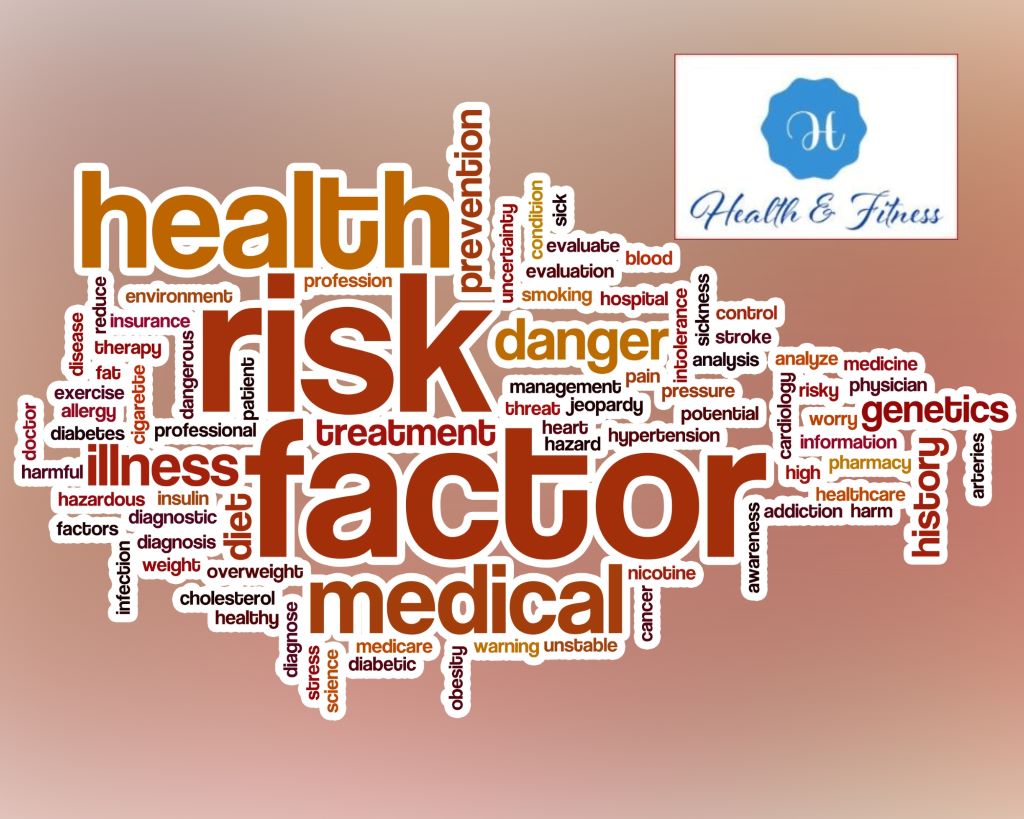The Silent Killer: Understanding Heart Failure Symptoms and Causes
Heart Failure Symptoms affect millions globally and occur when the heart cannot pump enough blood. It often goes unnoticed until it reaches an advanced stage, earning it the nickname “silent killer.” However, early detection and intervention can manage the condition. Understanding heart failure and its causes is crucial, and we will explore it comprehensively in upcoming sections, covering symptoms, causes, diagnosis, and treatments.
Understanding Heart Failure
Heart failure is a severe ailment caused by insufficient blood pumping to meet the body’s demands. This can result from various factors, including heart muscle damage, blockage in the heart’s blood vessels, or a structural defect in the heart.
There are two main types of heart failure: systolic and diastolic. Systolic Cardiac failure occurs when the heart’s ability to expel blood is weakened, failing to contract with sufficient force to push blood out to the body. Diastolic Cardiac failure occurs when the heart’s relaxation function is weakened.
This signifies that it cannot contain enough blood to expel the body. Regardless of the type, heart failure can cause various symptoms, such as shortness of breath, fatigue, and swollen ankles and feet. It can also increase the risk of serious complications like heart attack, stroke, and kidney failure.
Understanding how Cardiac failure occurs helps us know how the heart works. The heart muscle contracts to circulate blood throughout the body, supplying oxygen and nutrients to the organs and tissues. It does this by contracting and relaxing in a coordinated manner controlled by electrical impulses.
When the heart functions properly, it can adjust its blood output based on the body’s needs. For example, during exercise, the heart pumps more blood to supply the muscles with oxygen and nutrients. However, in heart failure, the heart cannot keep up with the body’s demands, leading to various symptoms and complications.
Frequently, Heart collapse is caused by common factors like coronary artery disease, hypertension, diabetes, and obesity. Other factors that can increase the risk of heart failure include a history of heart attacks, heart defects present at birth, and certain infections or medications. American Heart Association. What is Heart Failure? https://www.heart.org/en/health-topics/heart-failure/what-is-heart-failure. Accessed February 27, 2023.
Symptoms of Heart Failure

-Heart Failure Symptoms
Heart failure can cause a wide range of physical and emotional symptoms.
Common physical symptoms include:
-
-
- Shortness of breath: This can occur during physical activity or even at rest and may be accompanied by wheezing or coughing.
- Fatigue can occur even with light activity and may interfere with daily tasks.
- Swollen ankles and feet: This can be caused by fluid buildup in the body due to the heart’s inability to pump blood effectively.
- A rapid or irregular heartbeat can occur as the heart tries to compensate for its weakened state.
- Difficulty concentrating or confusion: This can occur due to decreased blood flow to the brain.
-
In addition to these physical symptoms, Cardiac failure can cause emotional symptoms such as depression, anxiety, and irritability. Living with a chronic illness can be challenging and affect a person’s overall quality of life. The symptoms of heart failure can vary depending on the type of heart failure a person has.
For example, in systolic heart failure, the primary symptom is often shortness of breath, while in diastolic heart failure, the primary symptom is often fatigue. Other factors that can affect the symptoms of heart failure include the severity of the condition, the age and overall health of the person, and any underlying medical conditions.
If you are experiencing any of the symptoms of heart failure, it’s important to seek medical attention right away. Early diagnosis and treatment can help improve your symptoms and quality of life and can also help prevent serious complications.
Causes of Heart Failure
-
-
- Heart failure can result from various factors, ranging from common to less frequent. The most frequent causes of heart failure are:
- When the blood vessels supplying blood to the heart become narrowed or blocked, it reduces blood flow to the heart muscle, known as coronary artery disease.
- Elevated blood pressure can force the heart to exert more effort to circulate blood, gradually weakening the heart muscle.
- Diabetes can impair the nerves and blood vessels responsible for heart control, potentially leading to heart failure.
- Obesity can strain the heart and increase the risk of developing heart disease.
-
Less common causes of heart failure include viral infections, heart defects present at birth, and certain medications or toxins. In some cases, the cause of heart failure may be unknown.
Risk factors for Heart Failure

-Heart Failure Symptoms
Several risk factors can increase a person’s chances of developing heart failure.
These include:
-
-
- Age: Heart failure is more common in older adults.
- Family history: Individuals with a family history of heart disease or Cardiac failure face an elevated risk.
- Smoking: Smoking can damage blood vessels and increase the risk of heart disease.
- Sedentary lifestyle: Failing to engage in physical activity can heighten the likelihood of developing heart disease and experiencing heart failure.
- Chronic conditions: The presence of medical conditions such as hypertension, diabetes, and obesity can heighten the probability of experiencing Cardiac failure.
-
Diagnosis and Treatment of Heart Failure
If you are experiencing symptoms of heart failure, it’s important to see a healthcare provider immediately for an evaluation.
A healthcare provider typically starts by conducting a physical exam and reviewing your medical history to diagnose heart failure.
They may also order one or more of the following tests:
-
-
- Echocardiogram: This test is non-invasive and employs sound waves to generate an image of the heart and how it is operating.
- Electrocardiogram (ECG): This test measures the heart’s electrical activity and can help identify abnormalities.
- Blood tests can help identify any underlying medical conditions or risk factors.
-
If Heart insufficiency is diagnosed, there are several treatment options available, including:
-
-
- Medications: Several medications can help improve heart function, reduce symptoms, and prevent complications.
- Lifestyle changes: Changing your diet, exercise habits, and other lifestyle factors can help improve heart health and reduce the risk of complications.
-
Surgery:
- It may be essential to mend defective heart valves, circumvent obstructed arteries, or implant devices such as pacemakers or defibrillators.
- The specific treatment plan will depend on the Cardiac failure’s severity and any underlying medical conditions or risk factors.
- It is crucial to adhere to the treatment regimen prescribed by your healthcare provider and attend routine follow-up appointments to oversee your health status.
- Early diagnosis and treatment of Cardiac failure are important for several reasons.
- First, it can help improve symptoms and quality of life. Second, it can aid in averting severe complications such as heart attack, stroke, and kidney impairment.
- Ultimately, initiating treatment early can assist in decelerating the advancement of the disease and enhancing long-term results.
Prevention of Heart Failure

-Heart Failure Symptoms
While Heart insufficiency can be a serious and potentially life-threatening condition, you can take numerous measures to decrease the likelihood of developing it.
Some key strategies for preventing Cardiac failure include:
-
-
- Lifestyle changes: Adopting a healthy way of life is among the most effective approaches to decreasing the likelihood of heart disease and heart failure. This can involve engaging in routine physical activity, consuming a balanced diet low in saturated and trans fats, refraining from smoking and restricting alcohol intake.
- Managing underlying health conditions: It is crucial to collaborate with your healthcare provider in effectively managing underlying health conditions such as hypertension, diabetes, or other medical conditions.
-
This may include taking medications, making lifestyle changes, and attending regular check-ups to monitor your condition.
It’s important to note that prevention is not always possible, particularly when a genetic predisposition or other uncontrollable factors cause heart insufficiency.
However, making healthy lifestyle choices and managing underlying health conditions
can go a long way toward reducing risk and improving overall health.
Centers for Disease Control and Prevention: https://www.cdc.gov/heartdisease/heart_failure.htm
Tips for Managing Heart Failure
Collaborating closely with your healthcare provider is crucial to managing your Cardiac failure diagnosis effectively.
Apart from adhering to your treatment regimen, there are multiple ways to handle your symptoms and enhance your quality of life:
-
-
- Monitor your symptoms: Keep track of your signs daily and report any changes to your healthcare provider. This can help identify potential complications or changes in your condition that may require additional treatment or adjustment to your current treatment plan.
- Manage your medications: Ensure you understand how to take your medications correctly and on schedule. Don’t stop taking drugs or adjust the dosage without consulting your healthcare provider.
- Make lifestyle changes: In addition to the lifestyle changes recommended for preventing Cardiac failure, there are additional changes you can make to help manage your symptoms. These may include limiting your salt intake, getting regular exercise (with your healthcare provider’s approval), and managing stress.
- Seek support: Coping with a persistent medical condition such as Cardiogenic shock can present difficulties, and it’s important to have a support system in place. This may include family, friends, support groups, or a mental health professional.
-
By following these tips and working closely with your healthcare provider, you can effectively manage your Cardiac failure and live a healthy and fulfilling life.
Conclusion:
Heart failure is a serious and potentially life-threatening condition affecting millions worldwide. This article covers the key points about Cardiac failure, including its definition, causes, symptoms, diagnosis, and treatment options.
It’s important to recognize the symptoms of Cardiac failure and seek medical attention promptly if you experience any signs of this condition Early diagnosis and treatment can help improve outcomes and reduce the risk of serious complications.
Remember to protect your heart health by making healthy lifestyle choices, managing underlying health conditions, and seeking support when needed. By working closely with your healthcare provider and following a comprehensive treatment plan, you can effectively manage Cardiac failure and live a healthy and fulfilling life.
We hope this article has been informative and helpful in understanding Cardiac failure. Take action today to protect your heart health and reduce your risk of Cardiac failure.



